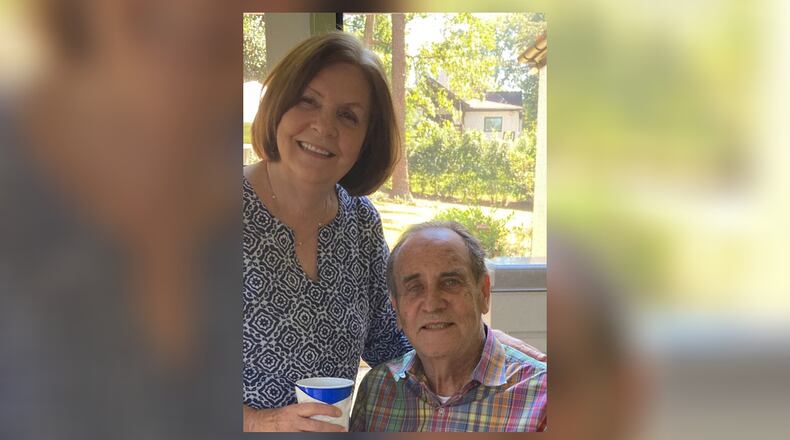The pandemic has made healthcare workers harder to find and that’s also affected families of Alzheimer’s patients who are looking for help.
By 2050, the number of Georgians living with Alzheimer’s disease is expected to reach 190,000, an increase of 26.7 percent, according to the Alzheimer’s Association. That rise will put even more pressure on caregivers and families, said Linda Davidson, executive director of the Alzheimer’s Association, Georgia Chapter.
Nationally, fueled by the general aging of the population, the number of people age 65 and older with Alzheimer’s is projected to reach 12.7 million by 2050, according to the report.
“We just don’t have enough direct care providers,” said Davidson. “And often they’re being asked to work more hours and maybe supporting more people with the disease. The turnover is really high, around 65 percent. That, to me, is overwhelming and with turnover that high, you’re in perpetual recruitment and training.”
And for many of the families of people with Alzheimer’s and other dementias, one of the biggest challenges will be finding professional caregivers, according to the latest “2022 Alzheimer’s Facts and Figures” report, released annually by the Alzheimer’s Association.
Earlier this week, the deadline arrived for healthcare workers in Georgia to be fully vaccinated against COVID-19 or have a valid religious or medical exemption to stay on the job.
According to the Centers for Medicare and Medicaid Services, nursing homes in Georgia reported at least 88% of their employees had been vaccinated.
Assisted Living Salary & Benefits Report, published by Hospital & Healthcare Compensation Service, found while pay and bonuses increased for some jobs in assistant living communities, turnover also rose.
On average, around the nation, resident assistants and dementia personal care aides, for instance, received a boost in hourly pay in 2021 of 10.61% and 10.66% respectively, according to the annual report. Despite the pay raises, the turnover rate for those job categories was 68%.
Mary Beth Moody cares for her husband, Roland, a 76-year-old retiree, who was diagnosed with Alzheimer’s two-and-a-half years ago.
She noticed that Roland, who had a career in retail management and later worked with two mission organizations, began to have trouble remembering things and struggled to process information like what he read or conversations he recently had.
Moody, who lives in Peachtree Corners, said she wants to have in-home care for Roland now, but she’s worried about the costs and the availability of good people.
It’s hard, she said, to find someone who is consistent and will work well with her husband.
“Let’s face it, people who are doing caregiving have stressful situations in their own lives,” said Moody, 74, a retired preschool director at a local church.
And she’s found it takes a special skill to work with someone with Alzheimer’s.
“With Alzheimer’s, you know your spouse is not going to move forward. You have to tell them ‘Now it’s time to brush your teeth,’ and you have to do that every day and you know it’s only going to get worse.”
For now, Roland Moody goes to respite care a couple of times a week outside of the home, giving his wife time to run errands. “It takes time away from us being together as a couple,” she said.
The report also looked at caregiving and how it breaks down along racial and ethnic lines.
In 2021 there were an estimated 338,000 unpaid caregivers in the state: Of those, 21% were dealing with their own depression and 14% had their own health issues.
In Georgia, there were 100 geriatricians — or doctors who focus on health and care of the elderly. The Alzheimer’s Association predicts there will need to be a 392% increase needed in their numbers to meet the demand in 2050.
Older non-Hispanic Black and Hispanic/Latino Americans are disproportionately more likely to have Alzheimer’s or other dementias. The report didn’t have Georgia figures, but in the U.S. 19% of Black and 14% of Hispanic residents over age 65 have Alzheimer’s dementia, compared to 10% among whites.
About the Author
Keep Reading
The Latest
Featured




